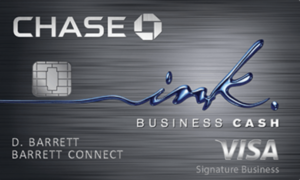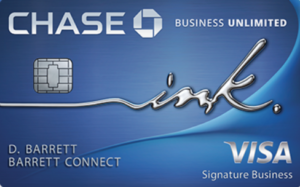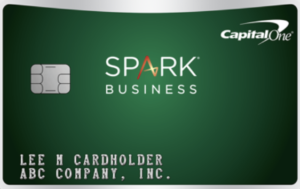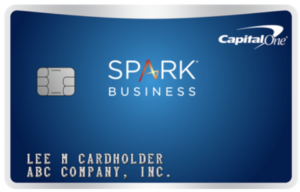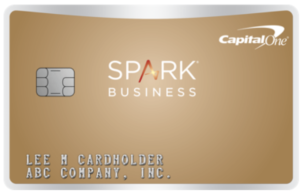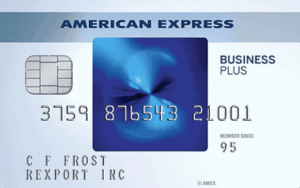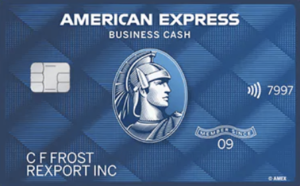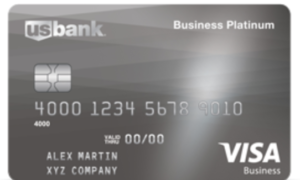What makes a great bank for business purposes?
In today’s day and age, your bank needs to have online banking capabilities. There are online-only banks as well as physical branches offering online banking services.
While most banks today have some type of online portal, not all of these are created equal.
The best business checking accounts have dozens of online features, like mobile deposits, digital bill pay, and fraud alerts.
You’ll also need to consider other banking products that you can access online. I’m referring to things like business savings accounts, merchant services, credit cards, and small business loans.
Whether you run a startup or a multi-million dollar well-established corporation, I’ll show you the best online business banking solutions to fit your needs.
Top 10 Online Business Banking Accounts For 2020
There are hundreds of different online business bank accounts on the market today. But these are the top ten that I recommend:
- Novo
- Axos Bank
- Chase Bank
- TIAA Bank
- US Bank
- Navy Federal Credit Union
- Azlo
- Radius Bank
- Citizens Bank
- First Internet Bank
I’ll highlight the type of online accounts offered, prices, benefits, and other online banking solutions for each one below.
The Best Online Business Banking Reviews
Novo
If you’re a small business owner, freelancer, or entrepreneur seeking an online-only business banking solution, look no further than Novo.
Novo is a modern and simple way to handle your business banking needs. Here’s an overview of top features and benefits of this online bank:
- No monthly service fees
- Refunds at all ATMs
- Free incoming and outgoing ACH transfers
- Free domestic and foreign wires
- Free mailed bank checks
- No minimum balance requirement
It takes less than ten minutes to apply for a Novo online business bank account. You need just $50 to open an account.
Novo has an outstanding mobile app that lets you handle all of your business banking needs on the go. It integrates with business tools that you’re already using, like Slack, Xero, and Zapier.
You’ll also benefit from discounts on business tools like HubSpot, Salesforce, Zendesk, Google Cloud, and Stripe.
Overall, Novo is a basic online-only bank for business owners seeking simplicity. But it does lack other banking tools beyond a checking account.
Axos Bank
Axos Bank is another top online-exclusive business bank. But unlike Novo, Axos features a suite of business banking solutions, including multiple account types and additional services.
- Basic Business Checking
- Business Interest Checking
- Business Premium Savings
- Business Money Market
- Business Savings
- Business Certificate of Deposit (CDs)
- Certificate of Deposit and Registry Service (CDARS)
Axos also offers treasury management solutions to streamline your payment processing. They provide additional merchant services like POS terminals, mobile commerce, and PCI compliance.
You’ll need at least $1,000 to open an Axos business checking account.
Your account comes with 200 free transactions per month. There are no monthly maintenance fees, and you’ll have access to a surcharge-free ATM network.
Axos has everything you’d expect from an online business banking solution, including a mobile app with remote check deposit capabilities.
But like any online-only bank, this isn’t for businesses that need to deposit cash.
Chase Bank
Chase Bank has some of the best business banking solutions on the market today. They have physical bank branches in addition to the online banking services.
Here’s an overview of the three different business checking accounts offered by Chase. All three of these can be opened and managed online.
Chase Total Business Checking
- $15 monthly service fee
- Unlimited electronic deposits
- $5,000 free cash deposits per billing cycle
- 100 free transactions per month
The $15 service fee is waived if you maintain a daily balance of $1,500. If you link a personal Chase checking account to your business account, the combined balance counts towards this minimum.
Chase Performance Business Checking
- $30 monthly service fee
- Unlimited incoming wires and electronic deposits
- 250 free transactions per month
- $20,000 free cash deposits per billing cycle
- Two free outgoing domestic wires per cycle
The $30 service fee is waived by maintaining a $35,000 minimum daily balance in qualifying business deposit accounts.
Chase Platinum Business Checking
- $95 monthly service fee
- 500 free transactions per month
- $25,000 free cash deposits per billing cycle
- Four free outgoing wires per cycle (your most expensive ones)
Chase will waive the $95 service fee if you maintain a daily balance of $100,000 or more between qualifying business deposit accounts.
As you can see, Chase has an online business checking account for businesses of all different shapes and sizes. It’s easy to determine which Chase business account is best for you based on the minimum balance requirements and free cash deposits per month.
In addition to checking accounts, Chase also has some of the best business credit cards on the market today. You’ll also benefit from merchant services and online business lending solutions if you need them.
TIAA Bank
TIAA Bank is a top option for those of you looking for an online-exclusive business banking solution. They offer checking accounts and treasury services for commercial businesses, small businesses, and nonprofit organizations.
If you’re a single-owner LLC or sole proprietor, you can get a high-yield small business checking account. As of February 2020, the intro APY rate is 1.21% for the first year.
Here’s a quick overview of the key features for each TIAA Business Checking account:
Business Checking
- $1,500 minimum to open
- 200 free transactions per month
- Ten free online bill payments per month
- $14.95 monthly maintenance fee (waived with $5,000 daily balance)
Small Business Checking
- $1,500 minimum to open
- No monthly maintenance fee
- Free ATM reimbursements up to $15 per month (unlimited with $5,000 daily balance)
- High yield on all balances
Nonprofit Checking
- $1,500 opening deposit minimum
- Interest-bearing checking
- Overdraft protection
- $14.95 monthly maintenance fee (waived with $5,000 minimum daily balance)
Analysis Checking
- Two different types of accounts available
- Interest-bearing checking
- $1,500 minimum opening deposit
- Offset fees with earnings credit rate
While TIAA Bank does offer a wide range of checking account types, I wish the nonprofit monthly maintenance fee was waived regardless of the balance.
The best account here is the high-interest checking account for sole proprietors and single-member LLCs.
US Bank
US Bank is a national chain with 3,000+ branches and more than 4,800 ATMs throughout the country. In addition its online banking solutions, you’ll be able to do some in-person banking if your business needs to make cash deposits.
There are four different business checking accounts offered by US Bank. All of which have online banking capabilities.
Silver
- No monthly fee
- $5 paper statement fee
- 125 free transactions per month ($0.50 per transaction after)
- 25 free units of cash deposits per month
The US Bank Silver business checking account is simple and made for startups and small businesses.
Gold
- $20 monthly fee (waived with qualified balances)
- Free paper statements
- 300 free transactions per month ($0.45 per transaction after)
- 100 free units of cash deposits per month
- Interest-bearing
The Gold business checking account is for small to mid-sized businesses with moderate transaction volumes.
Platinum
- $30 monthly fee (waived with qualified balances)
- 500 free transactions per month ($0.40 per transaction after)
- 200 free units of cash deposits per month
US Bank’s Platinum business checking account rewards business owners with higher balances.
Premium
The Premium account is unique. It’s an analyzed account; meaning fees can be offset by credits from your account activity. It’s unclear on the website what those fees, credits, and activity would be. But the account is made for larger organizations with high checking balances and lots of activity. You’ll need to contact US Bank directly for more information.
In addition to these four online checking accounts, US Bank also provides small business loans, credit cards, and merchant services. You’ll have access to everything you’d expect from a national bank.
Navy Federal Credit Union
Navy Federal is another national chain with physical branches in addition to online business banking. Business owners with ties to the US Armed Forces, National Guard, and DoD can open an online checking account with Navy Federal Credit Union.
They offer business checking, business savings, and CDs. Here’s an overview of Navy Federal’s three business checking accounts:
Business Checking
- Best for new businesses with limited cash flow activity
- No monthly maintenance fee
- Two signers
- 30 free non-electronic transactions per month ($0.25 per transaction after)
Business Plus Checking
- Best for growing businesses with multiple owners
- $8 monthly service fee (can’t be waived)
- Accommodates steady banking activity
- 50 free non-electronic transactions per month ($0.25 per transaction after)
Business Premium Checking
- Best for large businesses with high deposit balances
- $20 monthly fee (waived with average daily balance of $5,000)
- Great for large transaction volumes
- 100 free non-electronic transactions per month ($0.25 per transaction after)
- Up to 0.45% APY (based on balance)
I’d recommend Navy Federal online banking to business owners who are seeking a small business loan. Navy Federal has some of the best interest rates and approval rates on the market today. So you can get your checking account and loan from the same bank while managing everything online.
Azlo
If you’re a freelancer or launching a startup, Azlo is a top online-exclusive business bank to consider. It’s only a viable option if you’re not accepting cash.
Highlights of an Azlo business banking account include:
- No monthly fees
- No overdraft fees
- No minimum balance requirements
- Unlimited transactions
- No incoming wire fees
Azlo integrates with business tools like Square, Stripe, and QuickBooks.
You can deposit checks remotely with Azlo’s intuitive mobile app. You’ll also be able to create, send, and manage digital invoices to your clients through the Azlo platform. This is ideal for clients who want to pay via bank transfer.
If you’re looking for an online bank that offers loans, savings accounts, and other banking services, Azlo is not for you.
Radius Bank
Radius Bank has a wide range of online business banking solutions. Here’s a quick list of the online services you’ll have access to with a Radius business account:
- Four different business checking accounts
- Money market savings
- CDs and CDARS
- Statement savings accounts
- SBA loans
- Commercial real estate loans
- Equipment financing
- Credit cards
- Escrow services
- Nonprofit services
As you can see, Radius offers everything you could possibly need and more from an online business bank.
One standout is the Tailored Checking account, which is made for growing businesses. Tailored accounts come with:
- Unlimited transactions
- 0.75% APY for balances above $5,000
- Unlimited transactions
- $10 monthly fee (waived with balances over $5,000)
- No minimum balance requirements ($100 to open)
- Free ATM network worldwide
You can apply online in less than ten minutes without uploading any documents. Between the online services and mobile banking tools, Radius Bank is a top choice to consider.
Citizens Bank
Citizens Bank is a top choice for business owners that want access to lots of different online banking solutions. Furthermore, Citizens has 1,100+ branches and 3,100+ ATMs (mostly on the east coast). So it’s a good option for those of you with in-person banking needs as well.
Let’s take a closer look at the company’s business checking accounts:
Clearly Better Business Checking
- Best for small businesses with moderate account activity
- No monthly fee
- No minimum opening deposit
- 200 free transactions per billing cycle ($0.50 per transaction after)
Business Advisor Checking
- Best for businesses with higher account activity
- $25 monthly fee (waived with $10,000 average daily balance)
- No minimum opening deposit
- 500 free transactions per billing cycle ($0.30 per transaction after)
Citizens Analysis Business Checking
- Best for large businesses that need ACH, transfers, wires, and cash management
- $20 monthly fee (can’t be waived, but can be offset with earnings credits)
- No minimum opening deposit
- Custom transactions (must speak to a representative for details)
In addition to these checking accounts, Citizen offers credit cards, investing options, business benefits, healthcare banking, and a wide variety of business resources. Large organizations will have access to commercial banking solutions as well.
First Internet Bank
As the name implies, First Internet Bank is an online-only bank. There are three different types of banking solutions offered by this bank.
- Small business checking
- Commercial checking
- Business savings and CDs
Overall, the commercial checking accounts stand out the most.
Lots of online-only banks on the market today are geared towards startups and small business owners. But First Internet Bank has a wide range of banking services for large organizations and enterprises.
Businesses opening a commercial checking account will benefit from features like:
- Dedicated business banking experts
- Treasury management services
- Merchant services
- Sweep services
- Wire services
- Zero balance accounts
Contact First Internet Bank to ask about a custom business banking solution to meet the needs of your large organization.
How to Find the Best Online Business Bank Account For You
All of the online banks on our list won’t be a viable solution for your business. You’ll need to narrow down your options based on certain factors. This is the methodology that we use here at Quick Sprout to find the best online bank for you.
Business Type
You can start by narrowing down your choices based on the size and structure of your organization. Some online banking accounts are geared towards startups, sole proprietors, and freelancers. Others are designed for small businesses to mid-sized and larger organizations.
For example, if you have a small business with three locations and 30 employees, you can immediately eliminate the accounts designed for freelancers and single-member LLCs.
Fees
Lots of online business bank accounts come with monthly fees. Some banks do offer free banking, and others let you waive the monthly fee by maintaining a minimum daily balance.
Unlike personal checking accounts, business accounts typically come with monthly transaction limits. You might have to pay up to $0.50 per transaction once you exceed those limits.
Regardless of your situation, you can find a way to avoid these fees by finding an account that falls within your banking activity.
Checking Accounts and Banking Solutions
What do you want to get out of your online bank? You’ll need a checking account, at a minimum.
But the day might come when you’ll need access to other banking solutions.
- Business savings accounts
- Business CDs and CDARS
- Merchant services
- Business loans
- Business credit cards
It’s easier to get all of this under one roof, as opposed to searching for another bank at a later time.
In-Person Banking Availability
Online-exclusive banking isn’t for everyone. If you have physical store locations that accept cash, you’ll need the ability to deposit those funds at a branch.
Banks like Chase, US Bank, Citizens Bank, and Navy Federal Credit Union all have branches for in-person business banking. Just verify that there is a branch in your area.
Mobile Accessibility
Part of being a great online bank means having an excellent mobile app. The majority of your online banking activity can be done from the palm of your hand.
Mobile apps are used for things like remote check deposits. But you’ll want an app that goes beyond this basic feature. All of the banks on our list have modern and efficient mobile apps for your business banking needs.
Conclusion
Here’s a recap of the ten best online business banking solutions on the market today:
- Novo — Simple online-only business checking account with no hidden fees.
- Axos Bank — Online-exclusive bank with interest-bearing checking solutions.
- Chase Bank — Best online business checking accounts for businesses of all sizes.
- TIAA Bank — Best high-interest checking for sole proprietors and single member LLCs.
- US Bank — National bank with four online checking accounts and banking services.
- Navy Federal Credit Union — Best online banking for business owners with ties to the Armed Forces, National Guard, and DoD.
- Azlo — Best online-only business bank for freelancers.
- Radius Bank — Best online banking solution for growing businesses.
- Citizens Bank — No minimum balance requirements and free checking available.
- First Internet Bank — Best online commercial checking account for complex business banking needs and high transaction volumes.
I purposely included banks for all types of businesses on here. From freelancers to enterprises, and everything in between, I know you can find what you’re looking for on this list.

from Quick Sprout https://ift.tt/2TiVO00
via
IFTTT



